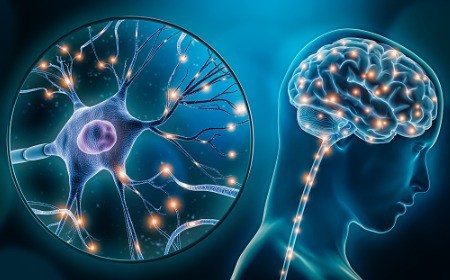Are you magnesium deficient? Constant fatigue, muscle cramps, and heart palpitations might be telling you something. This crucial mineral, often overlooked, powers over 300 bodily functions.
Up to 75% of Americans don’t get enough magnesium, impacting everything from energy levels to nerve function. Imagine feeling vibrant and cramp-free, with a steady heartbeat.
Discover the top symptoms of magnesium deficiency, its causes, and simple solutions in this guide. It’s time to unlock your health potential through optimal magnesium levels.
Key Takeaways
- Magnesium is vital for energy production, nerve function, and blood sugar control.
- Common deficiency symptoms include muscle cramps, fatigue, and cardiovascular issues.
- Diagnosis involves symptom evaluation and blood tests; treatment includes dietary changes and supplements.
- Full-spectrum magnesium supplements, combining multiple forms of magnesium, can offer comprehensive benefits and improved absorption.
Understanding Magnesium Deficiency

A deficiency in magnesium arises when an individual’s diet does not supply a sufficient amount of this essential mineral for normal bodily functions.
Magnesium is integral to numerous biochemical reactions, playing a pivotal role in the overall maintenance of health. Its various crucial functions include:
- energy production from food,
- regulation of the nervous system,
- protein synthesis,
- maintaining muscle and nerve function at optimal levels,
- controlling blood sugar balance,
- and boosting immune health.
The question “how much magnesium should one take?” frequently comes up as people strive to ensure they are getting enough magnesium to meet their body’s needs.
To fill any gaps in dietary intake of this mineral and reach recommended daily amounts may prompt consideration towards using a magnesium supplement.
Magnesium reserves are mainly stored within our bones, which act as a reservoir that can be utilized if dietary sources become insufficient.
The kidneys also play an important role by regulating how much magnesium the body retains.
Low concentrations can trigger several health problems such as high blood pressure (hypertension), type 2 diabetes, and bone weakening conditions like osteoporosis.
Older individuals often experience heightened risk for depleted levels of magnesium due to factors including lower consumption through diet diminished absorption efficiency, and increased loss via renal excretion.
Thus, being low on magnesium for a long time can lead to serious health problems like heart disease, diabetes, and migraines.
It’s important to understand how vital magnesium is and to watch for signs of deficiency to maintain your best health.
Common Symptoms Magnesium Deficient People May Experience

Symptoms of magnesium deficiency can be subtle and might resemble various other health conditions, leading to confusion.
These signs, including muscle cramps, spasms, fatigue, and cardiovascular problems, must be identified early to avert the potential development of long-term health issues related to insufficient magnesium levels.
Muscle Cramps and Spasms
Muscle cramps and spasms are often indicative of low magnesium levels, with nighttime leg cramps being a significant symptom.
Should the deficiency be severe, it can lead to seizures or convulsions, underscoring the importance of quickly correcting low magnesium levels in the body.
Fatigue and Weakness

Consistently experiencing fatigue and muscle weakness could be a sign that you are suffering from more than just insufficient sleep.
A deficiency in magnesium can disrupt nerve communication and affect the potassium concentration within muscle cells, contributing to these symptoms.
Although these indicators are not unique to a lack of magnesium, their presence alongside other related signs should serve as a warning signal for potential magnesium deficiency.
Cardiovascular Issues
Heart health is intimately connected to the magnesium content in one’s body.
A deficiency in this vital mineral may result in arrhythmia and heart palpitations, which can increase the likelihood of suffering a stroke or cardiac failure.
Should you notice irregular heartbeat patterns or other related cardiovascular issues, it might be prudent to investigate low magnesium as a potential root cause.
Causes of Low Magnesium Levels
Magnesium deficiency can arise from numerous sources, such as:
- Specific health conditions.
- Various medications.
- Inadequate dietary consumption.
- Long-standing medical issues.
- Particular drugs.
Identifying these key factors is crucial for the proactive prevention of low magnesium levels.
Understanding what leads to low magnesium enables you to actively prevent a deficiency in this nutrient.
Poor Dietary Intake

Numerous current diets do not supply sufficient amounts of magnesium.
Data from the National Health and Nutrition Examination Survey (NHANES) indicate that almost half of the population in America does not consume enough magnesium to meet the estimated average requirement, suggesting a widespread potential for magnesium deficiency.
The shortfall in consuming foods abundant with magnesium – including nuts, seeds, green leafy vegetables, and whole grains – is a notable contributor to the risk of insufficient magnesium intake.
Chronic Health Conditions
Individuals with long-standing health conditions, especially those affecting the gastrointestinal tract such as Crohn’s disease and celiac disease, may experience compromised absorption of magnesium.
Those suffering from diabetes or alcohol use disorder, as well as individuals who have had gastrointestinal surgeries, face a heightened risk of developing magnesium deficiency because their conditions can lead to inadequate absorption or augmented excretion of this mineral.
Certain Medications
Particular medications, including diuretics and notably proton pump inhibitors (PPIs), may lead to a reduction in magnesium levels within the body.
Extended usage of PPIs, which are frequently employed for acid reflux management, can result in hypomagnesemia and thus require regular monitoring of magnesium levels.
Conversely, diuretics elevate the excretion rate of magnesium through urine, thereby playing a role in causing deficiencies.
Diagnosing Magnesium Deficiency
To accurately diagnose a deficiency in magnesium, one must use an array of diagnostic techniques including evaluating symptoms, utilizing blood tests, and employing advanced testing procedures.
This is essential because relying solely on blood tests may not yield dependable results.
Hence, all potential methods should be taken into account for a precise evaluation.
Symptoms Evaluation
Identifying symptoms promptly is crucial for the timely diagnosis of magnesium deficiency. Typical indications of this condition include:
- Exhaustion.
- Muscle twitches.
- Vomiting sensation.
- Psychological health problems such as nervousness and melancholy.
Should these signs be present, it’s advisable to seek a thorough assessment from a medical professional.
Blood Test Limitations
Blood tests frequently assess magnesium levels. These evaluations may not always be accurate.
Given that merely around 1% of the body’s total magnesium content is present in the bloodstreams, standard blood level readings can fail to represent an actual deficiency accurately.
This situation underscores the importance of developing more thorough diagnostic techniques for assessing magnesium levels.
Advanced Testing Methods
Sophisticated diagnostic techniques, including magnesium RBC tests and urine magnesium tests, provide a more precise evaluation of one’s magnesium levels.
By analyzing the amount of magnesium in red blood cells and tissues, these methods deliver a better understanding of an individual’s actual status regarding this mineral.
Engaging with a healthcare professional can aid in identifying the most suitable testing method to accurately ascertain your body’s magnesium condition.
Effective Treatments for Magnesium Deficiency
Addressing magnesium deficiency treated requires a comprehensive strategy that incorporates altering one’s diet, consuming oral supplements, and administering intravenous magnesium for acute cases.
Understanding these treatment methods is crucial in effectively remedying and preventing future occurrences of magnesium deficiency.
Dietary Changes
Incorporating foods high in magnesium into your diet is an effective strategy to combat and prevent a deficiency.
Foods such as leafy greens, nuts, and whole grains are packed with magnesium and can contribute to a well-rounded healthy diet.
Adopting these dietary adjustments has the potential to significantly enhance both your levels of magnesium and your general health.
Oral Magnesium Supplements
Magnesium citrate and magnesium glycinate are types of oral magnesium supplements that successfully restore magnesium levels.
Known for its superior bioavailability, magnesium citrate is particularly effective, whereas the calming effects and high absorbency of magnesium glycinate make it a favored choice.
Employing these supplements can proficiently resolve issues related to low levels of magnesium.
Intravenous Magnesium
When an individual is faced with severe magnesium deficiency, administering magnesium intravenously may be required.
This approach offers a rapid remedy for critically low levels of magnesium and is carried out in a healthcare environment.
The delivery of IV magnesium guarantees the immediate provision of this essential mineral to the body, ensuring there are no delays in addressing low magnesium conditions.
The Benefits of Full-Spectrum Magnesium Supplements
While dietary changes can significantly improve magnesium intake, some individuals may benefit from a full-spectrum magnesium supplement.
These supplements typically combine different forms of magnesium to maximize absorption and provide a range of health benefits.
A full-spectrum magnesium supplement like Magnesium 7 can offer several advantages:
- Comprehensive coverage: By including multiple forms of magnesium, these supplements can support various bodily functions more effectively than single-form supplements.
- Enhanced absorption: Different magnesium forms are absorbed and utilized by the body in unique ways. A full-spectrum approach ensures better overall absorption and bioavailability.
- Targeted benefits: Various magnesium forms may have specific health benefits. For example, magnesium glycinate may support sleep and relaxation, while magnesium malate could aid in energy production.
- Convenience: Instead of taking multiple individual magnesium supplements, a full-spectrum option provides a convenient all-in-one solution.
- Balanced approach: Full-spectrum supplements often provide a balanced ratio of different magnesium forms, which can be challenging to achieve through diet alone.
While Magnesium 7 is one option in this category, it’s important to consult with a healthcare professional before starting any new supplement regimen. They can help determine if a full-spectrum magnesium supplement is appropriate for your individual needs and health goals.
Enhancing Magnesium Absorption
To maintain optimal magnesium levels, it’s crucial to address factors that impede its absorption.
This can be accomplished through lifestyle changes and ensuring a balance of other nutrients that facilitate the uptake of magnesium.
Balancing Other Nutrients
Maintaining a balanced intake of nutrients like vitamin D and the B-vitamin complex can markedly boost the absorption of magnesium.
Vitamin D aids in increasing magnesium uptake by the intestines, while B-vitamins enhance its absorption at a cellular level.
By ensuring that these essential nutrients are consumed in proper amounts, you can improve your body’s efficiency in utilizing magnesium.
Lifestyle Adjustments
Adjusting one’s lifestyle by decreasing the intake of alcohol, and cutting down on coffee and soda consumption can boost the body’s magnesium absorption.
Regular exercise also plays a significant role in increasing the efficiency with which the body absorbs and makes use of magnesium.
Implementing these modifications can contribute to improved levels of magnesium as well as enhance general health.
Foods High in Magnesium

Ensuring your diet includes foods abundant in magnesium is crucial to staving off a deficiency of this mineral.
Foods particularly rich in magnesium encompass various nuts and seeds, including almonds, cashews, and peanuts.
Legumes such as black beans along with grains like quinoa—and leafy vegetables such as spinach and kale—are substantial sources.
There’s an array of dietary options teeming with magnesium.
- Abundant whole grains.
- Magnesium-packed fruits like bananas and dried figs.
- Protein-rich tofu.
- Nutrient-dense yogurt.
Incorporating these diverse food items into your meal regimen can be instrumental in sustaining optimal levels of magnesium that bolster overall well-being.
Risks of Too Much Magnesium
Ensuring that you receive a sufficient amount of magnesium is crucial, but it’s equally critical to prevent ingesting too much.
High levels of magnesium consumption, often from antacids and laxatives, may lead to toxicity. This condition can manifest through various symptoms like:
- vomiting,
- lethargy,
- abdominal pain,
- and loose stools.
In the most extreme situations, an overdose of magnesium might cause severe respiratory problems and other serious health complications.
The groups most vulnerable include infants, people with kidney issues, and elderly individuals. Hence they should be vigilant in monitoring their intake of this mineral.
Magnesium and Bone Health
An adequate intake of magnesium is crucial for the synthesis of the bone matrix and the formation of bones, which are fundamental to maintaining strong bones and preventing osteoporosis, especially in older adults.
By consuming enough magnesium, you can enhance your bone mineral density and lower your risk of fractures. It’s important for supporting overall bone health and averting conditions associated with weakened bones.
Summary
Magnesium is a crucial mineral supporting various bodily functions, from muscle and nerve health to bone formation.
Recognizing the symptoms of magnesium deficiency, understanding its causes, and knowing how to diagnose and treat it are essential steps in maintaining optimal health.
By making dietary changes, considering supplements, and enhancing magnesium absorption, you can ensure your body gets the magnesium it needs.
If you are looking to optimize your magnesium intake, consider trying a full-spectrum daily magnesium supplement.
These comprehensive formulations can provide a balanced approach to addressing potential deficiencies and supporting overall health.
Consult with your healthcare provider to determine if a full-spectrum magnesium supplement is right for you and take the first step towards better magnesium balance today.
Frequently Asked Questions
What are the early signs of magnesium deficiency?
If you’re experiencing muscle cramps, fatigue, and heart palpitations, it could be an early sign of magnesium deficiency.
Keep an eye for these symptoms and consider consulting a healthcare professional if you notice them.
How can I increase my magnesium intake?
To boost your magnesium levels, consider adding foods high in magnesium such as nuts, leafy greens, and whole grains to your meal plan.
Doing so can assist you in achieving the recommended daily intake of magnesium.
Are blood tests reliable for diagnosing magnesium deficiency?
Blood examinations may not be an accurate indicator for diagnosing magnesium deficiency, as they only evaluate a minimal fraction of the body’s overall magnesium content.
For a more precise evaluation, it is advisable to employ alternative diagnostic techniques.
What are the risks of taking too much magnesium?
Consuming excessive magnesium may result in indications such as diarrhea, drowsiness, and nausea. In instances of extreme overconsumption, it could potentially lead to a condition known as magnesium toxicity.
It is important to monitor your intake of magnesium attentively!
How does magnesium support bone health?
Magnesium is essential for maintaining bone health as it has a pivotal function in the formation of bones and aids in staving off osteoporosis.
What Are The Symptoms Of Magnesium Deficiency? Science AnswersMagnesium deficiency is a common condition that affects many people worldwide. So, questions like what are the symptoms of a magnesium deficiency have become quite common, and we aim to answer that today. Hypomagnesemia occurs when the body does not receive enough magnesium, an essential mineral that plays a vital role in various bodily functions. Understanding the symptoms of magnesium deficiency is crucial for early identification and intervention. In this article, we will delve into the symptoms, causes, diagnosis, and treatment options related to magnesium deficiency. Let’s get started.So, what are the symptoms of a Magnesium deficiency?
Before we dive into magnesium deficiency symptoms, it’s crucial to understand Magnesium and its importance. Research shows that magnesium is a mineral that is essential for the proper functioning of numerous bodily processes, including muscle contractions, nerve function, and energy production. Studies also show that magnesium is involved in the synthesis of DNA and proteins, making it crucial for overall health and well-being. A study published in the Clinical Kidney Journal shows that when it comes to muscle contractions, magnesium plays a vital role. It helps regulate the flow of calcium in and out of cells, which is necessary for muscle relaxation and contraction. Another study published in 2019 claims that without adequate magnesium levels, muscles may experience spasms, cramps, and even tremors. A study published in the journal Scientifica shows that in terms of nerve function, magnesium acts as a natural relaxant. It helps calm the nerves and promotes a sense of relaxation and calmness. This is why magnesium is often recommended as a natural remedy for anxiety and stress. Additionally, a study published in the journal Translational Research & Clinical Interventions shows that magnesium is involved in the production and release of neurotransmitters, which are essential for proper brain function and mood regulation. Magnesium is not only important for muscles and nerves but also for maintaining healthy blood pressure levels. It helps relax and dilate blood vessels, allowing for better blood flow. By supporting healthy blood pressure, magnesium reduces the risk of cardiovascular diseases such as heart attacks and strokes.Identifying Magnesium Deficiency
Hypomagnesemia can occur when the body does not receive enough magnesium through the diet or when there is impaired absorption or excessive loss of magnesium. Identifying the symptoms of magnesium deficiency is vital for early intervention and treatment. When it comes to magnesium deficiency, recognizing the signs and symptoms is crucial. By being aware of the common and severe symptoms, individuals can take the necessary steps to address the issue and prevent further complications.Common Symptoms of Magnesium Deficiency
According to a study published in The Clinical Biochemist Reviews, some of the most common symptoms of hypomagnesemia include:- Muscle cramps and spasms
- Weakness and fatigue
- Irritability and mood swings
- Difficulty sleeping
- Poor memory and cognitive function
- Irregular heartbeat
Severe Symptoms of Magnesium Deficiency
According to a study published in the Journal of Intensive Care Medicine, in severe cases of hypomagnesemia, individuals may experience more pronounced symptoms, including:- Numbness and tingling in the extremities
- Muscle contractions and stiffness
- Seizures
- Abnormal heart rhythms
- Hypocalcemia (low blood calcium levels)
Causes of Magnesium Deficiency
There are several factors that can contribute to magnesium deficiency. Understanding these causes can help in determining the underlying reason for the deficiency and guide appropriate treatment. Magnesium is an essential mineral that plays a crucial role in various bodily functions. It is involved in over 300 enzymatic reactions, including energy production, protein synthesis, and muscle and nerve function. When the body does not get enough magnesium, it can lead to a deficiency, which can have detrimental effects on overall health.Dietary Factors Leading to Magnesium Deficiency
One of the most common causes of magnesium deficiency is a diet lacking in magnesium-rich foods. Magnesium can be found in abundance in foods, such as leafy green vegetables, nuts, seeds, and whole grains. However, in today’s modern diet, processed foods, refined grains, and sugary drinks tend to be low in magnesium content. Furthermore, certain dietary factors can interfere with magnesium absorption and increase urinary excretion of magnesium. Excessive alcohol consumption, for example, can disrupt the body’s ability to absorb magnesium efficiently. A study published in the journal Alcohol Health and Research World claims that alcohol can also act as a diuretic, causing increased urination and subsequent loss of magnesium through urine. Moreover, a study published in the International Journal of Molecular Sciences suggests that certain medications, such as diuretics and proton pump inhibitors, can deplete magnesium levels in the body. These medications are commonly prescribed for conditions like high blood pressure and acid reflux, respectively.Health Conditions That Can Cause Magnesium Deficiency
Various health conditions can contribute to magnesium deficiency. A study published in the journal Molecular and Cellular Biochemistry suggests that gastrointestinal diseases, such as Crohn’s disease and celiac disease, can impair the absorption of magnesium in the intestines. Inflammation and damage to the intestinal lining can disrupt the normal absorption process, leading to reduced magnesium levels. Additionally, conditions like diabetes and chronic kidney disease can lead to excessive urinary excretion of magnesium, resulting in deficiency. In diabetes, high blood sugar levels can cause increased urination, leading to magnesium loss. Similarly, chronic kidney disease can impair the kidneys’ ability to retain magnesium, causing it to be excreted in urine. Furthermore, individuals who undergo certain medical procedures, such as gastric bypass surgery, may be at an increased risk of magnesium deficiency. The surgery alters the digestive system, affecting the absorption of various nutrients, including magnesium. It is important to note that magnesium deficiency can also be influenced by individual factors, such as age and gender. Older adults and pregnant women, for instance, may have higher magnesium requirements and may be more susceptible to deficiency if their intake is inadequate. In conclusion, magnesium deficiency can arise from various causes, including dietary factors and underlying health conditions. It is essential to maintain a balanced diet rich in magnesium and address any underlying medical conditions to prevent or treat magnesium deficiency.Diagnosing Magnesium Deficiency
Diagnosing magnesium deficiency involves a combination of assessing symptoms, reviewing medical history, and conducting laboratory tests. When it comes to diagnosing magnesium deficiency, healthcare professionals employ a comprehensive approach that takes into account various factors. It begins with a thorough evaluation of the patient’s symptoms, which can include muscle cramps, weakness, fatigue, and abnormal heart rhythms. These symptoms, although not exclusive to magnesium deficiency, can provide valuable insights into the possibility of a deficiency. Alongside symptom assessment, a detailed review of the patient’s medical history is conducted. This step helps identify any underlying conditions or factors that may contribute to magnesium deficiency. For instance, individuals with gastrointestinal disorders, such as Crohn’s disease or celiac disease, are at a higher risk of magnesium deficiency due to impaired absorption in the intestines.Medical Tests for Magnesium Deficiency
Several tests can help identify magnesium deficiency. These include blood tests, urine tests, and tests to measure magnesium levels in the hair or nails. Blood tests are the most commonly used method for diagnosing magnesium deficiency. They involve measuring the amount of magnesium present in the blood. However, it’s important to note that blood tests may not always provide a complete picture of magnesium levels in the body. This is because only a small fraction of the body’s total magnesium is found in the blood. Nonetheless, blood tests remain a valuable tool in the diagnostic process. In addition to blood tests, urine tests can also be utilized to assess magnesium levels. These tests measure the amount of magnesium excreted in the urine, providing insights into the body’s magnesium balance. Furthermore, tests that analyze magnesium levels in the hair or nails can offer a long-term perspective on magnesium status, as these tissues accumulate magnesium over time.Interpreting Test Results
Interpreting test results for magnesium deficiency can be complex, as magnesium levels need to be assessed in relation to other factors, such as calcium and potassium levels. Healthcare professionals take into account various factors when interpreting test results for magnesium deficiency. One crucial consideration is the balance between magnesium and other minerals, particularly calcium and potassium. These minerals work in harmony within the body, and imbalances can have significant implications for overall health. Therefore, a comprehensive analysis of all relevant mineral levels is necessary to accurately diagnose magnesium deficiency. It is important to note that self-diagnosis based solely on test results is not recommended. Consulting with a healthcare professional is essential for accurate interpretation and diagnosis. They have the expertise to evaluate the results in the context of the patient’s overall health and provide appropriate recommendations for treatment and prevention.Treating Magnesium Deficiency
The treatment of magnesium deficiency typically involves a combination of dietary changes and, if necessary, magnesium supplements.Dietary Changes to Increase Magnesium Intake
If magnesium deficiency is mild or moderate, increasing the consumption of magnesium-rich foods can help restore optimal levels. Foods that are excellent sources of magnesium include leafy green vegetables, nuts and seeds, whole grains, legumes, and fish.Magnesium Supplements and Their Effectiveness
In some cases, magnesium supplements may be recommended to achieve optimal magnesium levels. These supplements are available in various forms, including magnesium citrate, magnesium oxide, and magnesium glycinate. However, it is important to consult with a healthcare professional before starting any supplementation regimen.Daily Recommended Intake of Magnesium
The daily recommended intake of magnesium varies depending on age, sex, and life stage. According to the National Institutes of Health (NIH), the recommended dietary allowance (RDA) for magnesium is:- Adult males: 400-420 milligrams per day
- Adult females: 310-320 milligrams per day
- Pregnant females: 350-360 milligrams per day
- Breastfeeding females: 310-320 milligrams per day
In conclusion
Magnesium deficiency is a prevalent condition that can lead to various symptoms and impact overall health and well-being. Identifying the symptoms, understanding the causes, and obtaining an accurate diagnosis are crucial steps in managing magnesium deficiency. With appropriate treatment, individuals with magnesium deficiency can restore optimal magnesium levels and improve their overall health. If you are interested in finding the best supplement, check out the full-spectrum magnesium supplement here.Magnesium deficiency is linked to stress, diabetes, heart disease, osteoporosis, chronic fatigue syndrome, depression, anxiety, trouble sleeping, sore muscles, migraines, and many more debilitating health conditions.
If your body needs magnesium, you want the most beneficial kind your body can actually absorb. Organixx Magnesium 7 gives you seven (7) of the very best, most bioavailable types of elemental magnesium available.

Quick… what do stress, diabetes, heart disease, osteoporosis, chronic fatigue syndrome, trouble sleeping, depression, and anxiety all have in common? If you answered, “conditions or diseases caused by magnesium deficiency,” you would be correct. And these seven health problems are just the tip of the iceberg when it comes to the importance of consuming enough magnesium. Today we’re bringing you up to speed on magnesium deficiency causes, how to tell if you are magnesium deficient, and the best testing methods.
What Is Magnesium and Why Is It So Important?
Magnesium is an essential micronutrient for life and the 4th most abundant mineral in the human body. Within your cells, it’s the second-most abundant mineral after potassium and both are vital for a wide range of biochemical functions.

A 70kg (154 lb) adult has around 24 grams of magnesium (the same weight as a AA battery) in their body. A little more than half is found in bones, with the rest present in soft tissues. Less than 1% of the body’s total magnesium is present in the blood serum (the liquid component of blood) and in red blood cells [1,2], which makes accurate testing for magnesium deficiency challenging (more on that later).
Magnesium is required by your body to carry out hundreds of cellular processes [3]. Some of the most important include:
- Magnesium is an essential cofactor in at least 300 enzymatic reactions [4] – including those that maintain a steady heartbeat, blood pressure, blood sugar levels, and lipid peroxidation within normal levels [5]. (Lipid peroxidation is a process in which free radicals “steal” electrons from the fatty membranes that surround and protect our cells, leading to structural damage of cell walls.) Magnesium deficiency has been associated with a higher risk of hypertension, cardiovascular disease, stroke, and sudden cardiac death.
- It plays a key role in the metabolism of other important minerals such as calcium and potassium, and in the activation of vitamin D.
- Magnesium stabilizes enzymes, for instance, those that make adenosine triphosphate (ATP). Best known for its role in cellular energy production, ATP is required by your body to make fat, proteins, and nucleic acids such as DNA and RNA. It is also needed for muscle contraction.
- Magnesium acts as an essential cofactor for many enzymes that are essential for brain and nervous system function and health [6].

- Magnesium assists in maintaining strong bones [7]. Tight control of magnesium levels has been shown to be crucial for bone health, with both low and high magnesium having harmful effects [8]. Magnesium deficiency is known to contribute to osteoporosis.
- Magnesium is directly responsible for glutathione production and regeneration. Glutathione is known as the “Life-Extending Master Antioxidant” [9] and is an innate antioxidant present in nearly all living cells. It exerts “major effects on health at the molecular, cellular and organ levels.” Glutathione cannot be made without magnesium.
Magnesium also increases the activity of another important enzyme which enhances glutathione’s ability to neutralize free radicals. Free radicals damage cellular structures and contribute to disease formation – including those related to aging. - Magnesium enhances the activity of two other important innate antioxidants: catalase and superoxide dismutase (SOD). Catalase protects cells from oxidative damage while SOD is an enzyme that helps break down potentially harmful oxygen molecules in cells, thereby helping to prevent tissue damage.
What Causes Magnesium Deficiency? 10 Key Reasons Your Body Might Be Low in Magnesium
There can be many reasons for magnesium deficiency. Unless you’re growing your own foods in enriched soil and eating an impeccable diet, chances are your magnesium levels are being negatively impacted by one or more of these common causes:
#1. Most Americans simply don’t eat enough leafy greens and other magnesium-containing foods. Based on data from the National Health and Nutrition Examination Survey (NHANES), an estimated 79% of US adults do not consume the recommended daily allowance (RDA) for magnesium [10, 11].
#2. Even if you do eat plenty of magnesium-rich foods, modern agricultural practices have created soil that is deficient in minerals. If a mineral isn’t present in the ground, the plants that grow in that soil can’t uptake the mineral and it won’t be present in your food [12].
#3. Love your sweets? You’re not alone. Western diets contain an abundance of sugar, which requires more magnesium in order to be processed by the body.

#4. Processed and refined foods are another culprit as they have a much lower magnesium content than their unrefined counterparts. For example, it’s estimated that less than 20% of magnesium originally present in whole wheat remains in refined flour.
#5. Alcohol and consumption of green coffee lead to more magnesium excretion.
#6. Boiling and consumption of de-mineralized soft water eliminate another source of magnesium from the diet.
#7. As you age, your body becomes less efficient at absorbing the magnesium from your food in general. Even under normal (ideal) circumstances, only about 24–76% of the total dietary magnesium consumed is absorbed by the gut, while the rest is eliminated [13].
#8. For some people, certain conditions also reduce or impair magnesium absorption. For example, leaky gut (intestinal permeability) and certain medications that interfere with absorption.
#9. Health conditions that cause chronic diarrhea can also lead to excessive magnesium elimination from the body [14].
#10. Increased magnesium elimination leading to deficiency is sometimes seen in medical conditions such as diabetes, kidney disorders, hypercalcemia, and hyperthyroidism.
An Important Note About Hypomagnesemia (Low Magnesium in the Blood) in ICU Patients

Magnesium deficiency is typically seen in patients with malignant tumors, cirrhosis, or cerebrovascular disease [15]. In general, patients in intensive care units (ICUs) tend to have lower than normal magnesium levels.
This is extremely serious as postoperative patients in the ICU with severe hypomagnesemia (extremely low serum magnesium levels) were three times as likely to die than patients with normal levels [16].
How to Tell If You Are Magnesium Deficient
How do you know if you have a magnesium deficiency? Unfortunately, it’s not easy to diagnose, because many of its initial symptoms could also be symptomatic of other health issues. Typical magnesium deficiency symptoms include:
- low energy / fatigue
- weakness
- insomnia
- muscle cramps
- loss of appetite
- nausea
Then there is the wide array of diseases and health conditions that are often improved or eliminated by correcting a magnesium deficiency.
Chronic Fatigue Syndrome, Sudden Death, Infections & Migraines Linked to Low Magnesium
Chronic fatigue syndrome, characterized by flu-like symptoms and months or even years of lethargy, along with mood alterations, has been linked with low magnesium levels [17].
Sudden deaths in athletes may also be due to magnesium deficiency. Magnesium deficiency is also thought to increase the risk of susceptibility to infections and migraines [18].
Magnesium Deficiency and Stress: A Vicious Cycle
Stress is defined as a complex biochemical, physiological, and psychological response of our body, triggered by an external event that is interpreted by our brain as being harmful to us. Magnesium levels have been closely linked to stress levels [19].

For instance, magnesium has been shown to affect a number of neurotransmitter systems and hormones that coordinate our body’s responses to stress. [Note: Neurotransmitters are chemical messengers in our nervous system that transmit signals across a physical gap between nerve cells].
Low magnesium levels have been linked to many typical symptoms of stress such as:
- photosensitive headaches
- fibromyalgia
- chronic fatigue syndrome
- acoustic stress
- cold stress [20]
Acute stress has been shown to lead to more magnesium in the blood and more excretion via urine. This shift of magnesium from red blood cells into blood and eventually out of the body is initially helpful, reducing the harmful effects of stress. However, chronic, ongoing stress and the ensuing continuous magnesium depletion is harmful to your health [21].
In other words, stress of any kind, whether physical or emotional, increases your body’s need for magnesium. The greater the levels of stress you’re exposed to, the greater the loss of magnesium. And the lower your initial magnesium levels are, the more reactive to stress you tend to be and the more depleted you get, creating a vicious downward spiral.
We’ve all seen how people respond to stress differently. Genetic differences between how individuals manage magnesium levels in their body may be one reason for the difference in responses to stress.
Magnesium Deficiency May Contribute to Osteoporosis
Magnesium is essential for bone formation and maintenance. As noted earlier, slightly more than half (50-60%) of our body’s total magnesium is stored in our bones [22]. Magnesium also regulates the body’s levels of parathyroid hormone and the active form of vitamin D, both of which work to maintain bone structure and integrity.

Research shows that magnesium consumption aids in maintaining bone mineral density and preventing osteoporosis in both men and women [23]. Women with osteoporosis tend to have lower serum magnesium levels [24]. These and other findings indicate that magnesium deficiency is a risk factor for osteoporosis [25].
Promisingly, increasing magnesium intake from food and/or supplements appears to help increase bone mineral density. For example, one short-term study found that daily supplementation with magnesium citrate for 30 days in 20 postmenopausal women with osteoporosis suppressed bone loss [26]. Along with taking magnesium supplements, it’s advisable to supplement with vitamin D3 and K2 to naturally build bone density [27].
The Damaging Effect of Magnesium Deficiency on the Heart
Magnesium is an essential cofactor for enzymes in our body that help to manage blood pressure within normal levels and maintain a steady heartbeat [28,29]. Not surprisingly, magnesium deficiency is a risk factor for atrial fibrillation, which is an irregular, usually rapid heart rate that causes poor blood flow and is associated with an increased risk of stroke and heart failure [30].
The Framingham Offspring Study followed 3,530 participants (originally without any sign of atrial fibrillation or cardiovascular disease) for up to 20 years [31]. Participants with serum magnesium levels less than 1.8 mg/dL were approximately 50% more likely to develop atrial fibrillation compared to those with levels at 2.0 mg/dL or higher.
Similarly, a 2007 meta-analysis examined the efficacy of magnesium given intravenously for the acute treatment of rapid atrial fibrillation [32]. Magnesium administration was seen to be significantly quicker and more effective in achieving rate and rhythm control compared to control groups.
Magnesium Deficiency Is Both Caused by and Contributes to Type 2 Diabetes
Type 2 diabetes is one of the main causes of magnesium deficiency – and it’s also a common symptom of this illness. Both type 1 and type 2 diabetes are the commonest causes of magnesium deficiency, with 25-39% of patients being affected [33]. In fact, magnesium depletion may underlie some of the symptoms and pathologies of type 1 and 2 diabetes.

Magnesium is also involved in many of the enzyme systems regulating glucose homeostasis. Magnesium deficiency changes glucose metabolism. Magnesium plays a role in insulin sensitivity, and magnesium deficiency is associated with insulin resistance.
Exacerbating the problem is that insulin resistance has been linked to lower serum magnesium levels. Magnesium supplementation has been shown to reduce insulin requirement and improve glucose management in diabetic patients [34]. In a study of over 1400 participants, mean magnesium levels were seen to be lower among those with diabetes, relative to participants who did not have diabetes [35].
A 2016 meta-analysis showed that every 100 mg/day increase in magnesium consumption was associated with a 19% reduction in type 2 diabetes risk [36]. Another meta-analysis showed that circulating levels of magnesium in the bloodstream were inversely associated with incidence of type 2 diabetes [37]. For this reason, researchers have recommended diets rich in magnesium to lower the risk for developing type 2 diabetes [38].
Magnesium Deficiency Can Lead to Depression and Anxiety
As we have already seen, magnesium acts as an essential cofactor for many enzymes that are essential for brain and nervous system function [39]. Nervous system dysfunction as a result of magnesium deficiency may contribute to depression and anxiety [40,41].
Rapid recovery from major depression has been seen with magnesium supplementation, which also benefited many related and accompanying mental health conditions. The possibility that depression, anxiety, and related issues such as IQ loss and addiction might be addressed via magnesium supplementation is enormously exciting [42].
How to Test for Magnesium Deficiency & Which Test Is the Most Reliable?
As mentioned early on, magnesium in the bloodstream represents less than 1% of the body’s total magnesium levels [43]. As a result, measuring the levels of this essential mineral inside cells is much more difficult than it is to test a blood sample.

The most commonly used and readily available method for assessing magnesium status is a measurement of serum magnesium levels, even though serum levels don’t correlate very well with total body magnesium levels or levels in specific tissues [44]. Other methods include:
- measuring magnesium levels in erythrocytes, saliva, and urine
- measuring ionized magnesium concentrations in blood, plasma, or serum
- conducting a magnesium-loading (or “tolerance”) test
Unfortunately, no single method is considered accurate enough.
Tolerance Test
Some experts (but not all) consider the tolerance test – in which urinary magnesium is measured after a direct magnesium injection – to be the best method of assessing magnesium status.
In this test, the percentage of magnesium retained after magnesium injection is measured. The percentage of magnesium retained is greater in people with magnesium deficiency [45].
RBC Blood Test
Other health experts recommend the RBC blood test, in which magnesium levels in red blood cells are measured [46,47]. This test is usually only carried out when an individual shows specific signs of magnesium deficiency, such as:
- irregular heartbeat
- muscle cramps
- generalized sensation of weakness
When a person becomes magnesium deficient, magnesium that is normally stored in their red blood cells is dumped into the bloodstream. In such a situation, a standard blood test may show their magnesium levels as being normal, even though magnesium stores in red blood cells and other body tissues are depleted. Therefore, the RBC blood test is likely to be a more accurate test for magnesium deficiency than a standard blood test, although the latter is quicker and less expensive.
For instance, the Vitamin D, Magnesium & Omega-3 Test combines an assessment of magnesium in red blood cells as well as in the bloodstream. This is likely to be a much better indicator of magnesium status than the standard serum test offered by most doctor’s offices and hospitals [48].
Natural Dietary Sources of Magnesium
If you determine with your healthcare provider that you are deficient in magnesium, the recommendation will usually be to increase magnesium consumption through diet and/or supplementation.
If you’re not currently lacking, you need to ensure you’re intaking sufficient magnesium regularly to prevent deficiency. The Institute of Medicine recommends a daily intake of [49]:
- 310–360 mg for adult women
- 400–420 mg for adult men
Some of the best dietary sources of magnesium include:

- Drinking water – especially hard water
- Green leafy vegetables – Each molecule of the pigment chlorophyll (responsible for the wide range of green colors in plants and vegetables) contains an atom of magnesium. Therefore, vegetables such as spinach, kale, and spirulina are a major dietary source of magnesium.
- Yogurt and kefir
- Nuts such as cashews and almonds
- Seeds, including sunflower seeds and flax seeds
- Dark chocolate
- Unprocessed grains and cereals including buckwheat groats and wheat bran
- Legumes, certain fruits & vegetables, meat, and fish also contain appreciable levels of this essential micronutrient.
Finding the Best Magnesium Supplement
For all the reasons mentioned earlier (see the section on What Causes Magnesium Deficiency), it is difficult to get adequate magnesium through diet alone. For this reason, supplementation can be important – especially when trying to correct existing deficiencies.
If you and your doctor have determined that magnesium supplementation is appropriate for you, you’ll want to consider a highly bioavailable source of magnesium such as Magnesium 7 from Organixx.
Magnesium 7 is a premium, broad-spectrum magnesium supplement that includes equal amounts of seven of the most beneficial types of magnesium. In each 2-capsule serving of Magnesium 7, you get 500 mg of the highest-quality elemental magnesium in “chelated” (bonded) forms for optimal bioavailability.
Magnesium deficiency is linked to stress, diabetes, heart disease, osteoporosis, chronic fatigue syndrome, depression, anxiety, trouble sleeping, sore muscles, migraines, and many more debilitating health conditions.
If your body needs magnesium, you want the most beneficial kind your body can actually absorb. Organixx Magnesium 7 gives you seven (7) of the very best, most bioavailable types of elemental magnesium available.



